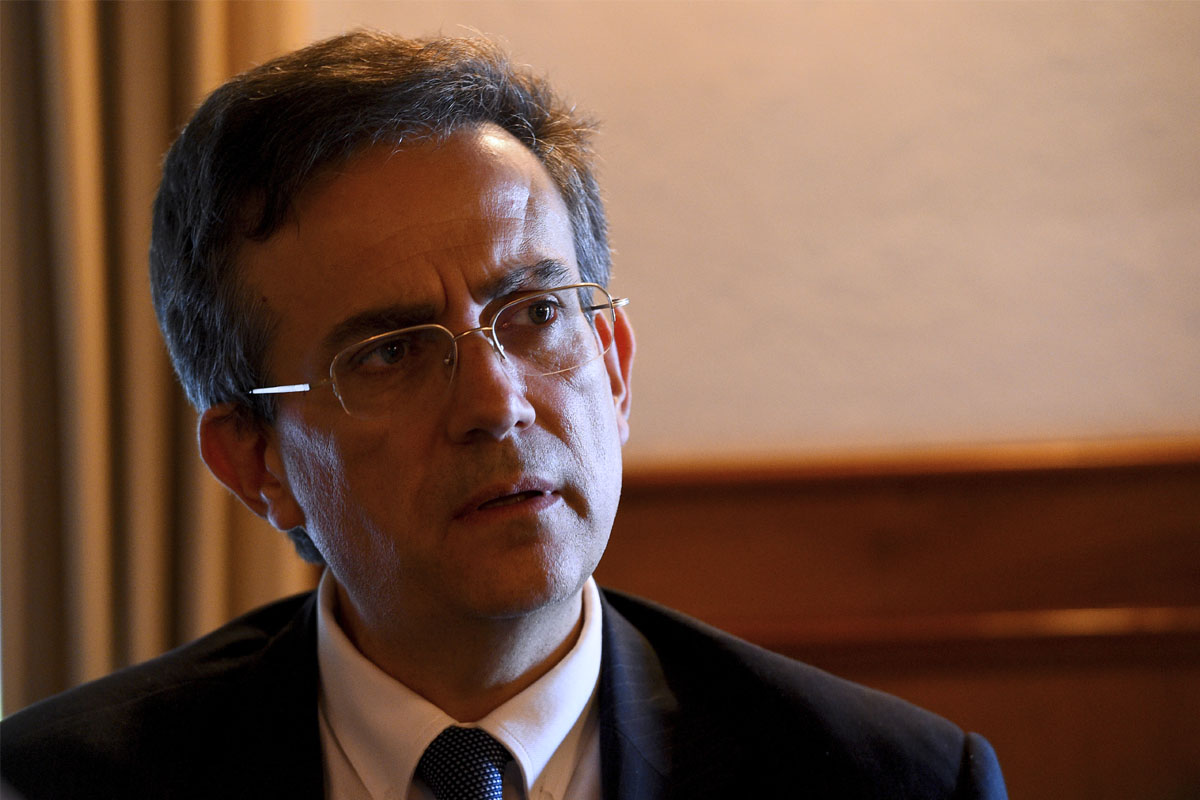Handloom fashion show at Bharat Tex 2025 attracts buyers from Europe, Australia
The event was organised at the amphitheatre in Bharat Mandapam as part of the Bharat Tex 2025 exhibition being held here from February 14-16.
Sri Lanka’s minister for Foreign Affairs, Dinesh Gunawardena, reiterated his government’s commitment to achieve sustainable peace through an inclusive “domestically designed and executed” reconciliation and accountability process.

Thierry Mathou, director for Asia and Oceania of the French foreign ministry, speaks to reporters in Colombo on February 27, 2020, after talks with Sri Lankan leaders. France on February 27 asked Sri Lanka to end impunity and ensure ethnic reconciliation a day after Colombo withdrew from a United Nations resolution investigating alleged atrocities during its decades-long separatist war. (Ishara S. KODIKARA / AFP)
After co-sponsoring the consensus resolution 30/1 of the United Nations Human Rights Council to promote reconciliation, accountability and human rights on 1 October 2015, and keeping members of the council in good humour for the last five years, the Sri Lanka government has informed the 43rd session of the Council now in progress in Geneva that it was withdrawing from co-sponsorship.
Sri Lanka’s minister for Foreign Affairs, Dinesh Gunawardena, reiterated his government’s commitment to achieve sustainable peace through an inclusive “domestically designed and executed” reconciliation and accountability process. Resolution 30/1 was renewed in two further resolutions in 2017 and 2019 pledging to establish a judicial mechanism with a special counsel to investigate allegations of violations and abuses of human rights and violations of international humanitarian law and affirmed that a credible justice process should include independent judicial and prosecutorial institutions led by individuals known for their integrity and impartiality.
Advertisement
It also affirmed the importance of participation in a Sri Lankan judicial mechanism, including the special counsel’s office, of “Commonwealth and other foreign judges, defence lawyers and authorised prosecutors and investigators.” No such mechanism was established in the last five years. Following the change of government in Colombo in late 2019, the government of Gotabaya Rajapaksa, instead of implementing the renewed commitments made through UNHRC, said it would pursue a “national effort” to achieve sustainable peace through a domestically designed and executed reconciliation and accountability process.
Advertisement
Michelle Bachelet, UN High Commissioner for Human Rights, expressed regret the new government of Sri Lanka has announced a very different approach to the commitments earlier made by the Sirisena government in Resolution 30/1 which risks setting back efforts to advance reconciliation, accountability and human rights. Calling on Sri Lanka to maintain a sustainable and durable reconciliation process, the European Union urged Colombo to ensure continued work of the Office of Missing Persons and the Office for Reparations and to replace the Prevention of Terrorism Act through confidence-building measures.
The EU wants the government of Sri Lanka to remain engaged with the UN and international partners. The United Kingdom expressed deep disappointment and concern the new government has changed its approach to the UNHRC Resolution and said it was profoundly committed to its principles of reconciliation, accountability, intercommunal harmony and justice for victims of conflict. International Ambassador for Human Rights Rita French, delivering the joint statement by the Core Group on Sri Lanka at the Human Rights Council meeting, requested the Sri Lanka government to ensure a prosperous and inclusive Sri Lanka for which rule of law and ending impunity are fundamental basis.
Advertisement